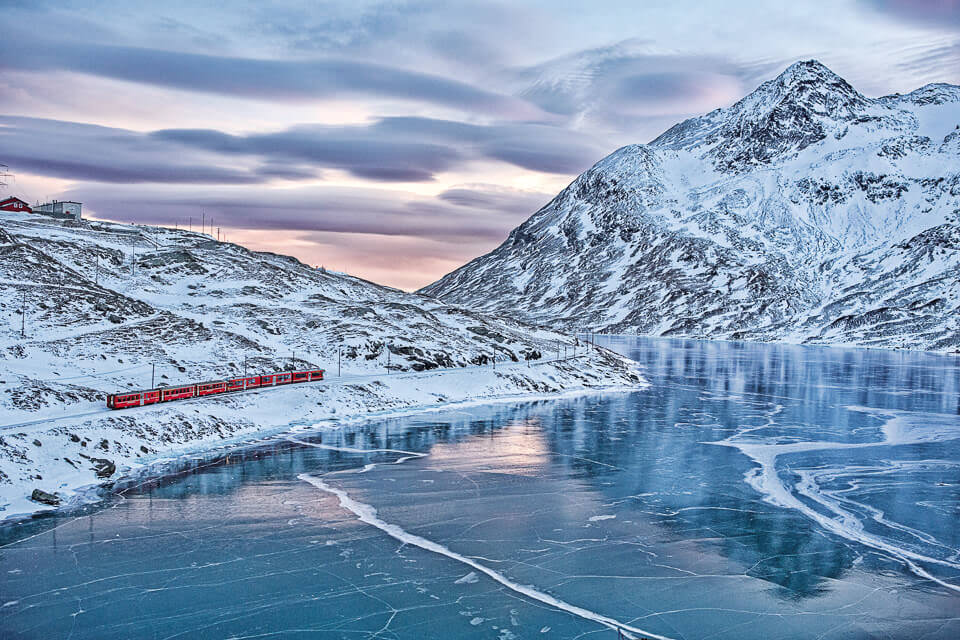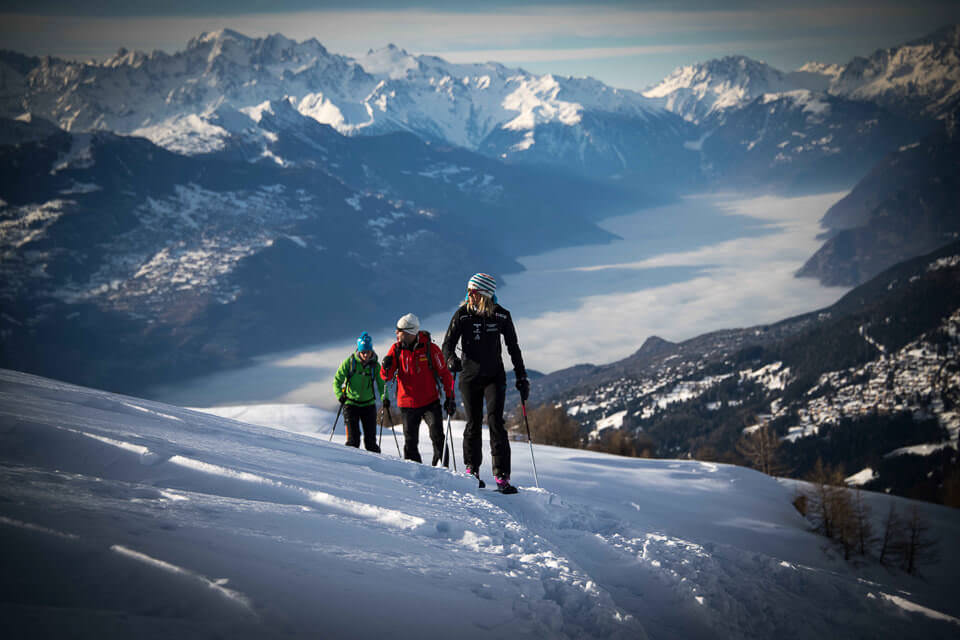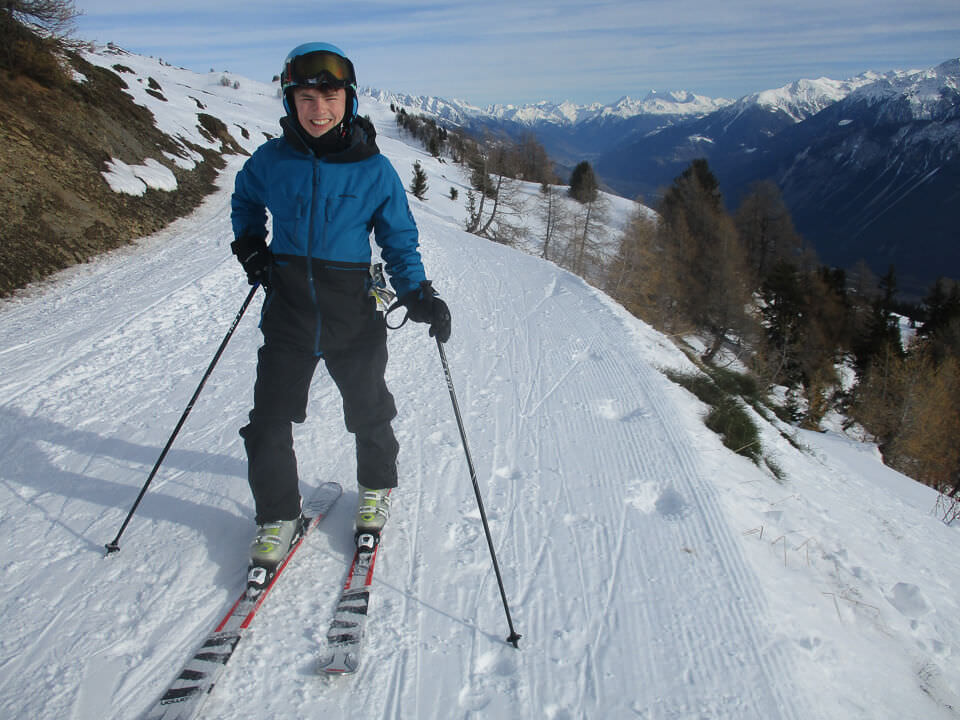Inverness to Crans Montana, Switzerland...
Inverness to Crans Montana by Train - by Robbie Thorne
When I decided to travel the roughly 1,700km from Scotland to Switzerland by train, I had little in my head but an ideal. I considered neither the practicalities nor realities of such a journey; I only knew I wanted to do it.
I had secured a job for the ski season working in a hotel in the Swiss Alps, and whilst getting there by air looked much quicker, simpler and cheaper I knew I wanted to start my adventure by train.
Politically and philosophically, I am an environmentalist. The green campaign I and a worldwide community are a part of has seen several overhauls in recent years, not least of which is its new anti-air travel faction. In Sweden, where activist and icon Greta Thunberg began her movement last year, this phenomenon or stance is known as flygskam (literally ‘flight-shame’). Its primary target is commercial aviation, and its means the consumer.
Since the early-1950s, commercial air travel has become the linchpin of the holiday industry. For the millions of people that will visit ski resorts this winter, flying will be the preferred form of transport. It is undoubtedly the fastest and most efficient way to get from cities to mountains, and thanks to budget airlines it is often the cheapest, in financial terms. Indeed, when I was planning my trip to the Alps, a flight from Edinburgh to Geneva was just over two hours and a mere £30.
This reduced price comes at a much greater cost however, and the shortened time may only shorten our time as a whole. Climate change, over-pollution, mass extinction—familiar terms worldwide and currently representing the biggest threats to life as we know it. Yet their meanings are detached from the everyday, rendering them to most as simply words. These problems are just ‘too grand’ to be noticed when face-to-face.
In the supermarket, shoppers buy food without care for disposable plastic, palm oil, or air miles. They buy clothes on a whim, products for the sake of products, looking no further than the brief happiness ‘getting things’ gives them. They are unable to connect those vast, existential menaces, with the infinitely minute actions that make them up. It is, after all, hard to draw a beach from a single grain of sand.

In the case of travelling, once more people act according to their ‘rational’ self-interest—according to the fleeting values of money, time, and comfort. And as with every other thoughtless act we do on a daily basis, there are consequences beyond our narrow vision.
The person books a flight, not thinking of the 5% aviation emissions contribute to cumulative global warming, nor the 2% of worldwide CO2 emissions air travel makes each year. While this may not sound a lot, if these figures were representative of a country then global aviation would be the 7th biggest polluter. Without further measures, these emissions are predicted to triple by mid-century, as more and more people fly.

Hence, my voyage by train. With an ongoing commitment to do something if I can do something (in regards to the environment), I saw the journey ahead as yet another opportunity. It should be noted here that trains are not without their own ecological impacts. No form of transport is bar our feet, and even then the shoes upon them are usually plastic or leather. Next to a flight however (connecting from Inverness to Edinburgh and onto Geneva), train travel would create roughly 1/25th of the carbon emissions, without counting the infrastructure in either case.
I started planning a few weeks in advance. In this case, I was thankful in that I had prior knowledge of my trip—as with flight prices, those of trains increase the closer you are to departing. Nonetheless, the cost Rome2Rio estimated—a fantastic app for working out the quickest and most efficient long-distance routes—was firmly over £300. This was ten times the amount Easyjet proposed on the first page of Google Search.
Though this first reality came like a sucker-punch, thanks to my parent’s words I was able to meet it head on. Their advice was to break the journey into segments, rather than booking as a whole via Trainline. To my relief, this more than halved the price—now I could reach the Alps for a more reasonable £140.
The second reality that faced me was the timescale. Trains, understandably, are slower than airplanes. Covering the massive distance on land in a single day would be impossible; covering it in two meant non-stop travel for 20 hours on the first, and some very tight changeovers.
My solution was to make a holiday out of the journey itself. This was where my far-flung acquaintances, made over the course of years, came in extremely handy. My brother and sister-in-law lived in Edinburgh, meaning I could go there a day prior and cut out 3 ½ hours of journey time. I also had a good friend in Lyon, whose family kindly offered me a room for a night. This put the journey at three days—Inverness to Edinburgh; Edinburgh to Lyon; Lyon to Crans-Montana.

Here however I went a step further. As I said, I was making a ‘holiday’ out of my voyage. For that reason, I decided to stay in Lyon for an extra day (with my hosts’ approval of course)—a choice I’m still glad I made.
Prior to my departure date I made a few more preparations. I printed my tickets, sorted them chronologically, and placed them in a folder alongside my passport. Organisation is key when you’re rushing through stations or dealing with impatient ticket inspectors. I kept this folder in my backpack, in which I also stored the essentials for the long journey.
As for my suitcase, I bought a padlock. Trains, unlike airplanes, have minimal security when it comes to luggage. My two bags were chosen for their mobility—the suitcase having wheels and the backpack support straps—needed for when I reached the Paris and Lyon Metros. Furthermore, everything I would need for the four days of travel were in my rucksack—meaning my case could remain closed until I arrived at my final destination.
One advantage train travel has over flight is its lack of limitations when it comes to packing. There are very few restricted items (or items that are not restricted in public anyway), and no extra charges when it comes to the size and weight of your luggage. You simply take as much as you can carry: liquids, aerosols, food and the rest. The only security process I faced was boarding the Eurostar, but I was allowed to keep my coffee and water bottle and didn’t have to unpack.
When the day of departure came, I was more excited than at any plane journey I had undergone. This felt like a true voyage rather than a commute; something reminiscent of older days, when steel roads first linked the European nations. Adding to that was comfort: a soft seat with a large table, phone charger, and free Wi-Fi welcomed me as I entered my carriage. Beside me was a panoramic window, rather than a keyhole-sized picture of clouds.
The view quickly improved as we left the city . The train ride through the Cairngorms is one of the many beautiful things on Earth, especially when the sun is surmounting the peaks. On that Tuesday morning the sky was the kind of pink that stung your eyes, underlined with a butterscotch glow. Hills rose and fell without fuss; the quiet coach (which I would highly recommend for solo travellers) was dark and peaceful. Personally, I prefer a train’s rumble to an aircraft’s hum; the former stems from a relationship with the Earth beneath, while the latter is entirely artificial.

After a delightful night in Edinburgh (as nights in Edinburgh always are), the views the next day were as magnificent. Once again the sunrise met me—this time a great golden ball over the North Sea. St. Pancras station when I arrived seemed as high-tech and well-furnished as Heathrow. Designer outlets of every kind; cafés, restaurants, and an outdoor plaza. Train stations are the perfect place for people-watching and here was no different; people of every gait and colour stumbled by in the thousands.
It was once I got to France that the third and most drastic reality hit. It was the week of the train strikes , with information on cancellations and delays being released only 12 hours beforehand. My train from Paris to Lyon was delayed by an hour. Conversely, the subway ride between Paris’s stations was far easier and quicker than I expected.
Only the day before did I find out my train from Lyon to Geneva was cancelled without replacement. Travelling by rail in France, this is an occasional and unfortunate situation. However and as before, I adapted. I immediately booked a coach ticket for a mere £7, and applied for a refund to my cancelled train. I was successful in both, and thus able to enjoy my spare day in Lyon. By chance, I had arrived for the Fête de Lumières; a night of light shows, mulled wine, and the city coming together.
The bus journey, though not as comfortable as a train, had some very impressive views of Eastern France. Exhausted from the night before, I slept through most of them. Border control was a little stickier—and here I truly would recommend rails over roads, as we were stuck on the frontier for 40 minutes. Traffic too became worse as we entered Geneva.
Thankfully, fate prevailed and I made my connection. When it comes to its rail system, Switzerland is something of an Air Emirates. Its trains are ridiculously punctual, clean, and peaceful to ride. It’s a pleasure simply to sit in one; a pleasure that becomes sheer awe when one reaches the mountains.
After Lausanne the Pennine Alps commence. In a land of rock, of seismic anger petrified into crevices and freed within waterfalls, the train traveller realises what they’re paying for. Not only to see the breath-taking natural wonder, but the realisation that in taking the train they are helping to preserve it. As the late eco-philosopher Arne Næss said (and to paraphrase): “The smaller one sees themselves next to the mountain, the closer they are to being part of its greatness.”
I could spend weeks taking that same train ride through the mountains; or indeed through the Highlands of Scotland. Looking back I realise that far from the environmental argument, travelling by plane would have denied me many experiences for the sake of efficiency.
From the skies I would not have seen my brother and dear sister-in-law, spending our last night together before months of separation. Nor would I have the time to read and write—for that’s how I spent my journey—a rare delight amongst the busyness of the daily grind. I wouldn’t have reconnected with my old friend and discovered a new city; indeed, I’m now to spend several more days with him on my return.
Above all, I wouldn’t have seen those works of Nature; not in the same sense, as a living part of them. High above the clouds one might feel free, only to realise they are in fact detached. If flying from urban life as most people do, they remain detached. Aviation is certainly a triumph of man over the natural world—using technology to grant the power of flight—but in doing so it pulls us further from the Earth to which we belong.
Despite all of this, I cannot rule out air travel conclusively. In the grand scheme of things it will have its uses, and like any technology it was created to at least better humankind. Hopefully in the future it will see further development, to the point where it is ecologically sustainable for us to fly.
Yet in my situation, I am forever grateful I took the train. If you can too, you should. In travelling at a slower pace and with patience, you may learn to appreciate more than your objectified destination. It’s still true to say the journey is the more valuable part, one you’d do well to profit from.
We have no time to stand and stare; but we certainly have time to sit.

Credits for photos used in this article: Robbie Thorne, Daniel Elkan, Switzerland Tourisme, Crans-Montana Tourisme.


 Back
Back